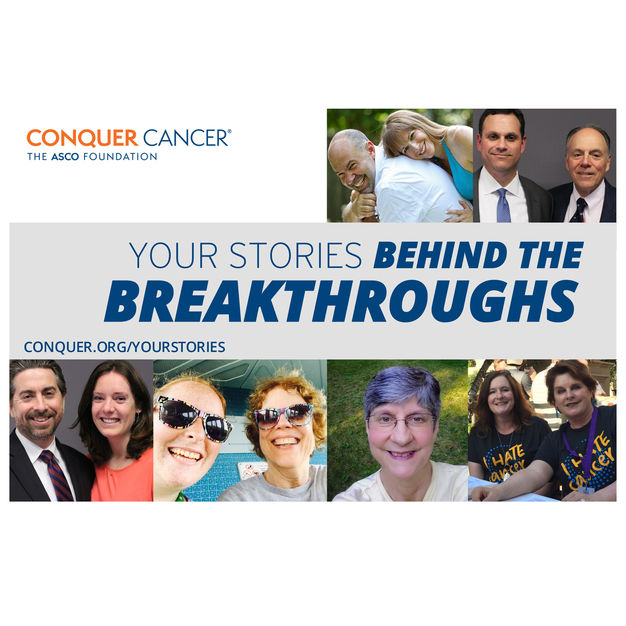
Your Stories: Behind the Breakthroughs
Conquer Cancer, the ASCO Foundation | The American Society of Clinical Onco
Your Stories is a mini-podcast series featuring the unscripted conversations between patients, doctors, and the family and friends who conquer cancer with them. Participants share their inspiring experiences as wives and husbands, daughters and sons, and sisters and brothers whose lives were interrupted by cancer.
- 39 minutes 30 secondsLessons in Self-Care (and Self-Love) with Cancer Fashionista
For patients with cancer, the holiday season can be particularly difficult: How is anyone supposed to prioritize self-care and recovery at a time when much of the world is going on about the joys of giving?
As a breast cancer survivor and a career fashion and beauty publicist, Melissa Berry is all too familiar with that challenge, along with the massive toll cancer can have on a person’s self-image. Enter Cancer Fashionista, a platform she’s built to help patients and survivors navigate cancer without sacrificing their self-confidence, self-worth, and self-empowerment. In this episode of Your Stories, Melissa shares her story—including how she turned her cancer journey into a brand and a platform that reaches thousands of patients and survivors every day.
17 December 2024, 10:00 am - 40 minutes 26 secondsBig Time Adulting: Kids, Cancer, and a Lesson in Laughter
Caitlin Murray has mastered turning life’s setbacks into something that brings joy to the 1.5 million people around the world who follow her Instagram page. When her 3-year-old son, Calum, was diagnosed with leukemia in 2016, Caitlin and her family’s lives were quickly filled with doctor visits, grueling treatments, and endless uncertainty.
Soon after Calum’s devastating diagnosis, Caitlin launched her blog, Big Time Adulting, to help keep her family informed and to cope with the challenges of parenting a child with cancer. However, Caitlin’s unique style of humor ultimately amassed an enormous audience. Today, with Calum in remission, Big Time Adulting serves as a multimedia outlet where Caitlin writes and shares about life, love, parenting, and the many ups and downs along the way.
In this episode of the Your Stories podcast, Caitlin discusses how maintaining a sense of humor can be a powerful antidote to the unforeseen obstacles that life can bring. She also reflects on the impact of practicing gratitude, including why it matters to raise support for cancer research.
19 November 2024, 10:00 am - 32 minutes 40 secondsStrength She Never Knew
Every 14 seconds, someone is diagnosed with breast cancer, making it one of the most frequently diagnosed cancers in the world, second only to lung cancer, and the leading cause of cancer-related death among women globally. And, while a cancer diagnosis can be devastating for anyone of any age or gender, one group faces a particularly unique and complex set of challenges: young working mothers.
It’s a reality that Irish patient Aisling O’Brien knows all too well. Aisling spent most of 2023 undergoing numerous rounds of treatment—including breast-conserving surgery right before the winter holidays—all while parenting three young children.
“I'm slowly getting back to what is now my new normal,” says Aisling, now that she’s through treatment and cancer-free. “It's given me a lot of perspective. I don't sweat the small stuff. I don't get nervous about things anymore, because what's the worst that could happen? It's shown me that I have a strength that I never knew I had.”
It helped that Aisling had a medical oncologist who was there to support her and her family every step of the way: Dr. Michaela Higgins. A two-time Conquer Cancer grant recipient based at St. Vincent’s University Hospital in Dublin, Ireland, Dr. Higgins has led numerous clinical trials for patients with breast cancer, helping to advance new treatments and cures.
In this Your Stories episode, Aisling and Dr. Higgins join host Dr. Mark Lewis for a conversation about the many challenges that come with balancing motherhood and breast cancer, along with the promising future of breast cancer research and care.
15 October 2024, 9:00 am - 25 minutes 41 secondsPicking Up the Pieces After Childhood Cancer
Prom. Graduation. College. These are just a few rites of passage that high school seniors everywhere look forward to. But for Auburn, a devastating turn of events tilted her entire world off its axis and put all her senior year plans on hold. At just 18 years old, she was diagnosed with Hodgkin lymphoma, a type of blood cancer. Instead of graduating with her classmates and going to senior prom, Auburn endured numerous rounds of lymphoma treatment, which is notorious for being incredibly taxing, especially for younger patients.
Fortunately, one of Auburn’s providers, Dr. Raymond Mailhot, is uniquely qualified to help patients find the best and least traumatic course of care. A two-time Conquer Cancer-funded award recipient, Dr. Mailhot focuses on improving radiation oncology for younger patients in the U.S. and in Latin American countries. With his Conquer Cancer funding, he’s determined to improve radiation treatment options for pediatric patients—research that has helped inform his approach to Auburn’s care.
In this Your Stories episode, Auburn and Dr. Mailhot have a heartfelt exchange about the many difficulties that cancer brings, especially for younger patients. Together, they reflect on Dr. Mailhot’s thoughtful approach to providing care for Auburn and the ways that Auburn has persevered to carve a promising path for her life.
17 September 2024, 9:00 am - 30 minutes 31 secondsThree Months at a Time
Gabriele “Gabe” Grunewald was a professional distance runner and a relentless optimist.
She competed in Big Ten Championship races, became an NCAA track and field All-American athlete, and finished 4th in the 2012 U.S. Olympic Trials. Such accomplishments become even more impressive when you learn that—even as she racked up accolades and wins—Gabe also faced cancer numerous times.
In 2009, Gabe was diagnosed with a rare type of cancer called adenoid cystic carcinoma (ACC). Then, in 2010, she was diagnosed with thyroid cancer. Despite these circumstances, Gabe persevered, continuing to train and run professionally. She also became a rare cancer advocate, launching the Brave Like Gabe Foundation to encourage other patients and survivors to embrace their own courage and chase their dreams.
In June 2019, after a decade of living with ACC, Gabe passed away at her home in Minneapolis surrounded by loved ones—including her husband, Dr. Justin Grunewald. An ultra-marathon runner himself, Dr. Grunewald is also an internal medicine specialist and chair of the Brave Like Gabe Foundation’s Rare Cancer Research Working Group. He joins the Your Stories podcast to share more about Gabe’s story and legacy, along with the importance of supporting rare cancer research so that patients with these rare diseases have more hope for better outcomes.
20 August 2024, 9:00 am - 30 minutes 22 secondsSkin Cancer 101: Spotting the Ugly Duckling
Whether you’re relaxing on the beach, taking a hike in nature, or hitting your favorite water park, we’ve heard it time and time again: Excess sun exposure increases the risk of skin cancer, so protect your skin and apply your sunscreen.
Of course, while some skin cancer risk factors are unavoidable, we all know there are proactive, preventive steps we can take—like applying sunscreen and limiting sun exposure—to decrease our risk. But what if you could do something that not only protects yourself from skin cancer, but also people around the world? Although numerous milestones have been made in skin cancer research and treatment, there remains significant room for improvement when it comes to treatment and care.
Dr. Lynn Schuchter is director of the Tara Miller Melanoma Center at Penn Medicine and a former president of the American Society of Clinical Oncology, or ASCO, for short. Having dedicated her career to caring for patients with skin cancers, Dr. Schuchter knows all too well how much progress still needs to be made in the field of skin cancer research and care. Today, Dr. Schuchter joins the Your Stories podcast to talk about the importance of prevention, patient-centered care, and the past, present, and future of skin cancer research and treatment.
16 July 2024, 9:00 am - 38 minutes 37 secondsBringing Better Cancer Care Back Home
For Dr. Kekoa Taparra, cancer is deeply personal. Growing up in a remote area of Oahu, Hawaii, Dr. Taparra witnessed his younger cousin’s struggles with neuroblastoma. He watched his mother lift and carry his aunt, too weak to walk because of breast cancer. He heard the sharp cries of another aunt suffering with endometrial cancer. These early experiences drove Dr. Taparra to not only dedicate his career to oncology and cancer research, but to focus on addressing the various inequities that face Native Hawaiian and Other Pacific Islander (NHPI) communities—from low rates of inclusion in clinical trials to geographic barriers to cancer care.
In 2023, Dr. Taparra received the inaugural Dr. Judith and Alan Kaur Endowed Young Investigator Award through Conquer Cancer, the ASCO Foundation. With this support, he launched a research project that uses machine learning to explore the various drivers of NHPI cancer disparities and helps categorize NHPI cancer data more effectively. He joins Your Stories host Dr. Don Dizon to share more about this important work and how his upbringing fueled his dedication to conquering cancer for every patient.
18 June 2024, 9:00 am - 38 minutes 40 secondsWhy Hasn’t Cancer Been Cured?
Not only does cancer predate the practice of medicine, but it may also predate the human species entirely. In 2016, archeologists in South Africa unearthed a large 1.7 million years-old bone fragment, ultimately revealed to be the toe bone of an ancient but unknown species of human dating back millennia. On that piece of bone, they discovered something else: a malignant tumor. It’s a stark reminder that, for as long as their profession has existed, oncologists have been studying and treating cancer. For many, it raises a frustrating question: After so many centuries of studying cancer, why haven’t we cured it yet? The answer is complicated.
Dr. Otis Brawley joins the Your Stories podcast to help us better understand what makes cancer such a complex and persistent adversary. In addition to being a professor of oncology at the Johns Hopkins University and a former chief medical and scientific officer of the American Cancer Society, Dr. Brawley is a member of Conquer Cancer’s Board of Directors and editor of The Cancer History Project, a free online resource dedicated to documenting the history of cancer in medicine. He talks with host Dr. Mark Lewis about why cancer has not yet been “cured” and about how our study and understanding of it has evolved over time.
21 May 2024, 9:00 am - 35 minutes 11 secondsStopping the Stigma
What do esophageal cancer, testicular cancer, lung cancer, cervical cancer, and colon cancer have in common? Each carries some type of stigma or taboo—whether because they’re linked to behavioral causes or because they affect portions of the anatomy traditionally deemed private. The impact of these stigmas can be detrimental: In some cases, stigmatized cancers receive less research funding, resulting in fewer treatment innovations for patients. Moreover, stigmas often result in patients hesitating to seek critical diagnostic care, increasing the risk that their cancer won’t be caught until it’s too late.
April is National Cancer Control Month, which aims to cut the U.S. cancer death rate in half by 2028. Although better cancer screening is a vital step toward that goal, many people do not get screened—a structural problem made worse by cancer stigmatization.
In this episode of the Your Stories podcast, we’re joined by Dr. Stacy Wentworth, an award-winning oncologist and cancer survivorship expert. As medical director of cancer survivorship at Atrium Wake Forest Baptist Health Comprehensive Cancer Center, she has two decades of experience with leading patient-centered care teams in diverse settings. Dr. Wentworth is also the founder of her weekly Substack, Cancer Culture. In this forum, she explores how personal, scientific, and sociocultural factors shape attitudes toward cancer, including the various stigmas and difficult conversations that may come with it.
16 April 2024, 9:00 am - 34 minutes 39 secondsA Collaborative Approach to an Uncommon Cancer
Imagine receiving a cancer diagnosis, only to immediately learn that not only has it spread to other parts of your body, but it’s also incredibly rare for it do so—so rare, in fact, that little to no research exists to inform your treatment. Katie Coleman doesn’t need to imagine this: She’s lived it. In December 2020, at just 29 years old, Katie was diagnosed with metastatic oncocytoma, a type of kidney cancer so rare that fewer than 10 cases have been recorded in history. Consequently, it’s also remained largely understudied, underfunded, and overlooked in cancer research. Luckily, Katie found Dr. Pavlos Msaouel, an oncologist and a three-time Conquer Cancer grant and award recipient with an incredibly niche research focus: targeting rare kidney tumors.
Despite a lack of research about Katie’s specific type of tumor, Dr. Msaouel’s experience with targeting rare kidney tumors—informed by his Conquer Cancer-funded research—enabled her care team to hone in on an approach that ultimately left her with no evidence of disease.
Now a cancer survivor and patient advocate, Katie has made it her mission to share her story and help others learn to more effectively navigate cancer care. In this episode of Your Stories, Katie speaks with podcast host and fellow survivor Brenda Brody about what she found most helpful during her cancer experience and the empowering impact of shared decision-making between providers and patients.
19 March 2024, 9:00 am - 42 minutes 3 secondsThe Woman Whose Cells Lived On
Henrietta Lacks: Her name is forever intertwined with Black history and medicine. Her cells are the source of the world’s first immortalized human cell line. Without her consent, her biological material was used to make groundbreaking advancements in research in a wide range of conditions and diseases, including AIDS and polio to radiation treatment and cancer care. More than 70 years have gone by since Henrietta Lacks passed away from ovarian cancer at age 31. And yet, today, the Lacks story remains just as relevant for Black patients in the U.S. and around the globe.
In this episode of Your Stories, we’re joined by Dr. Clyde Yancy, a member of the Henrietta Lacks Foundation Board of Directors and a professor of medicine and vice dean for diversity, equity, and inclusion at Northwestern University. Dr. Yancy provides unique insights into Lack's unforgettable place in history, the implications for building and maintaining trust in modern medicine, and what can be done to foster equity and representation for Black patients in cancer research. Together with host Dr. Don Dizon, he also unpacks the importance of diversifying the medical workforce and why it matters for Black patients and patients of color to see themselves in their providers.
20 February 2024, 10:00 am - More Episodes? Get the App
Your feedback is valuable to us. Should you encounter any bugs, glitches, lack of functionality or other problems, please email us on [email protected] or join Moon.FM Telegram Group where you can talk directly to the dev team who are happy to answer any queries.
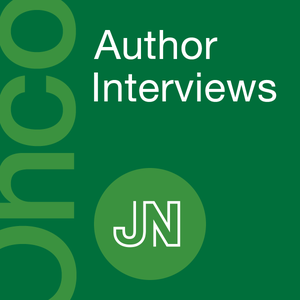 JAMA Oncology Author Interviews
JAMA Oncology Author Interviews
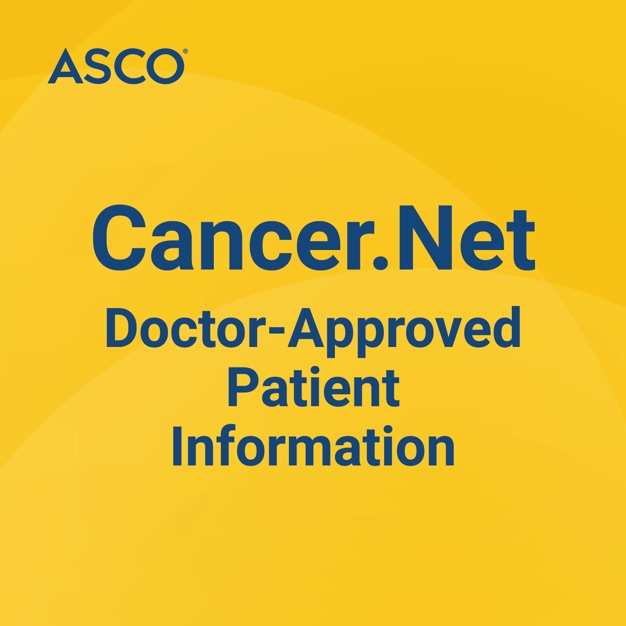 Cancer.Net Podcasts
Cancer.Net Podcasts
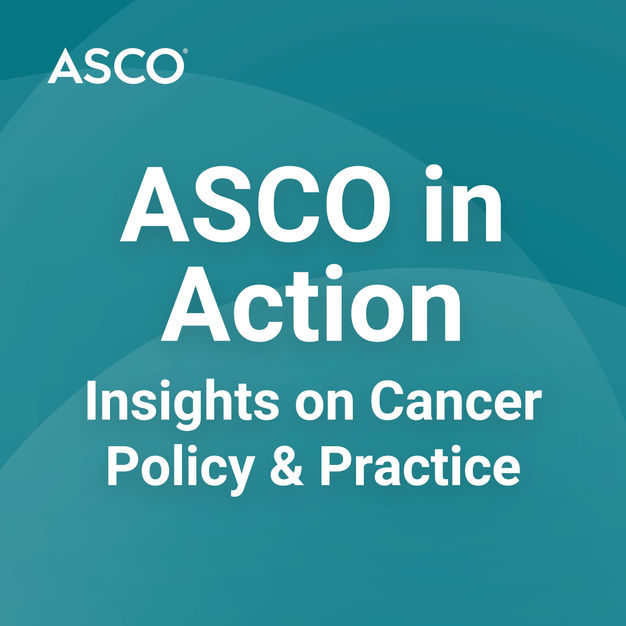 ASCO in Action Podcast
ASCO in Action Podcast
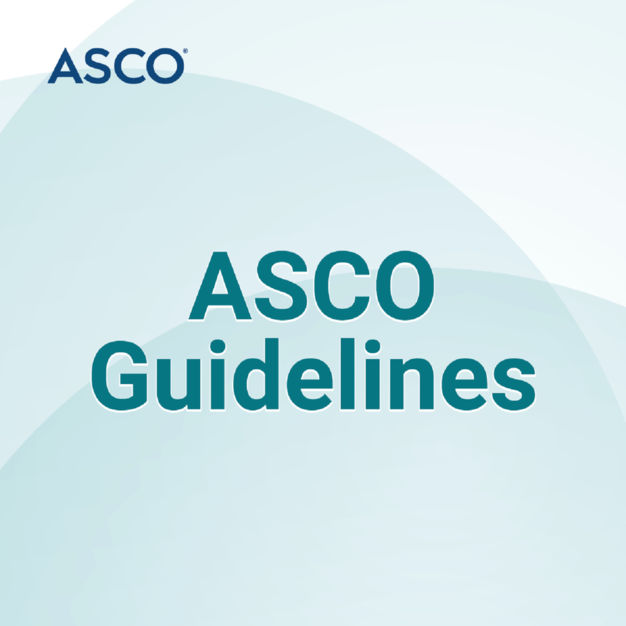 ASCO Guidelines Podcast Series
ASCO Guidelines Podcast Series
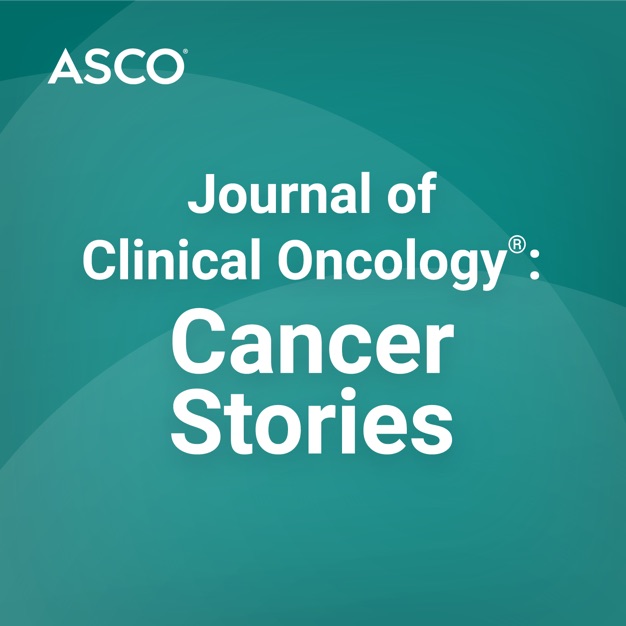 Cancer Stories: The Art of Oncology
Cancer Stories: The Art of Oncology
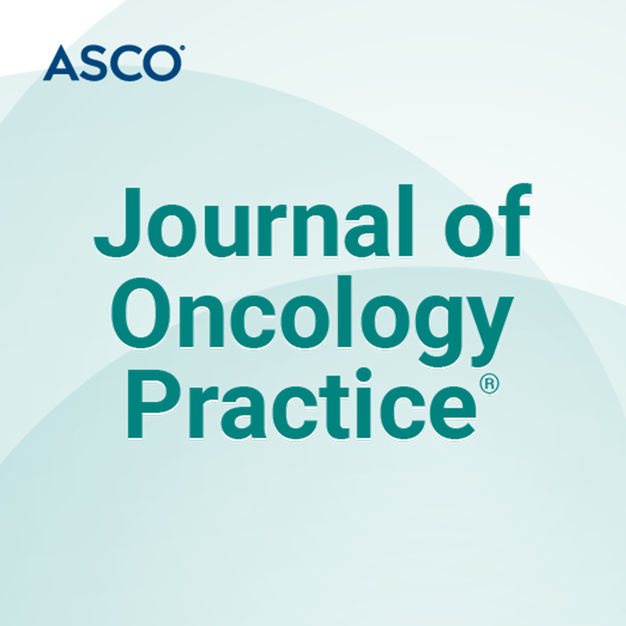 Journal of Oncology Practice Podcast
Journal of Oncology Practice Podcast